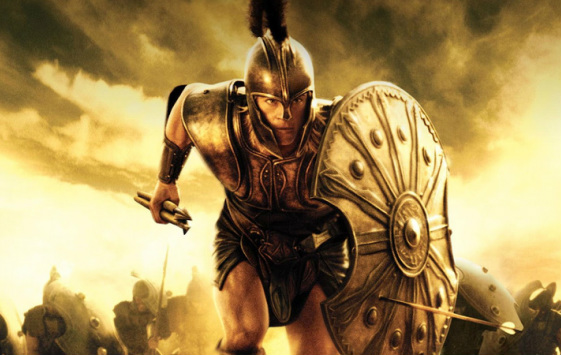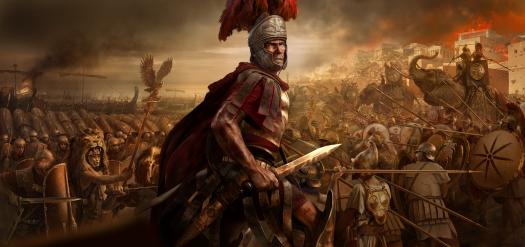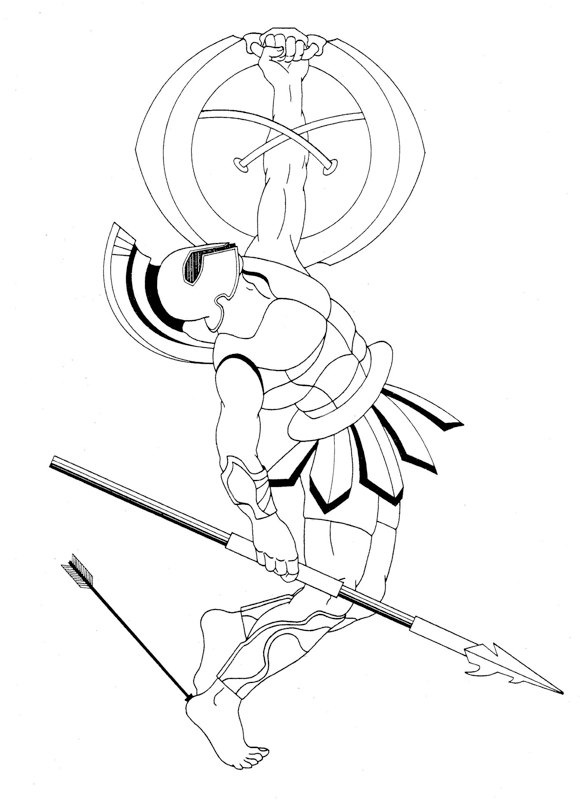前言:爪哥自诩对中华上下五千年历史了如指掌,可以"演义"得以假乱真栩栩如生。不过,相对于西方历史文化,俺还是块儿未经开垦的处男地。最近四嫂在喜马拉雅跟听西方文明史,在她不断的开垦下,爪哥现在对西方文明也兴趣十足。俺利用元旦期间,对西方文明中我醉感兴趣的女儿国的前世今生,废寢不忘食地深挖广究,终于写出了将要改写古希腊文明史乃至整个西方文明史的人文科学的扛鼎之作:
女儿国深度揭秘
几天前看到彭博社的一个报道,说是amazon正在以无以伦比的速度碾压实体店。2019年,在amazon上网购的女性已占全体购买者的60%。预计不出十年,amazon女性购物者将全面碾压男性,amazon将会成为女性购物者的天堂,变成名符其实的女儿国!
乖乖隆地咚!现在我总算是明白,为啥杰夫.贝佐斯当初建立网站时,将其命名为amazon。因为amazons在古希腊,就是女儿国的名字。
关于女儿国amazons,有一个美丽的传说。Once upon a time,在希腊诸国中,有一个传承了数百年的女儿国amazons。全国清一色是女性,个个国色天香,倾国倾城。更牛的是,美女们不仅长得艳若桃花,而且各个武艺高超,十八般兵器样样精通,108式驾轻就熟。嗯,正可谓既上的了牙床,又上的了战场。

有好奇害死驴的吃瓜群众会问,爪哥是不是又在忽悠人?美女总会生老病死,这女儿国咋传承数百年的?总不会个个都跟圣母玛丽亚一样,不啪啪也能怀孕生子吧?
嘿嘿,这次爪哥还真没有忽悠。女儿国之所以能传承数百年,当然有其生存之道。据爪哥考证,女儿国的每一个女孩纸长大成人,在每年的2月14日,都会穿上节日盛装,坐上用橄榄枝装饰的马车,来到国境线上。众所周知,希腊号称千岛之国,女儿国也不例外,乃希腊诸岛之一。其国境线,是通过一座名叫鹊桥的跨海大桥与其它希腊城邦接壤。每年的2/14,成千上万的希腊各城邦的男孩纸也穿上节日盛装,通过鹊桥来到女儿国一边,与女儿国的女孩纸相见...别误会,这是西方的鹊桥会,与咱中国的牛郎织女鹊桥会没有半毛关系哈。

据爪哥考证,amazons关于鹊桥会的rule one是酱紫:
被女孩纸相中的男孩纸,当时就可以坐进女孩纸的马车啪啪啪...
这恐怕是最早的关于人类车震的记载了。想想看,成百上千辆马车一字排开,全民共震的景象,成了amazons一年一度的一道亮丽风景线...(此处省略5000字),这就是西方情人节的来历。
不过,在那些被相中的希腊各城邦男孩纸逍遥快活的同时,那些没被相中的男孩纸的命运则截然相反。 据爪哥考证,amazons关于鹊桥会的rule two是酱紫:
所有没被相中的男孩纸,都要被杀死,埋在amazons边境的牡丹花下做有机肥料。
既便如此,每年的2/14,仍然有成千上万的希腊各城邦的男孩纸豪不畏死义无返故地参加鹊桥会,他们的口头禅是:
牡丹花下死,做鬼也风流!
那些个被相中的男孩纸,命运其实也不咋地。 据爪哥考证,amazons关于鹊桥会的rule three是酱紫:
这些男孩纸会做为播种机,一直留在amazons继续播种,直到女孩纸怀孕生子。 如果生的是女孩,皆大欢喜,生父可以活命,从鹊桥回去自己的城邦。如果生的是男孩,这个男孩,会在每年十一月份的最后一个星期四,被遗弃在鹊桥的另一侧,被希腊其他城邦的人抱走领养。这个星期四,被希腊其他重男轻女的城邦称之为感恩节。据说,希腊史上赫赫有名的战神阿基里斯,奥德修斯。。都是amazons的弃儿。

男孩儿的生父呢?对不起,木有完成任务,会在男孩儿被遗弃的第二天,被集体活埋在牡丹花下做有机肥。这一天,又被那些丧子的希腊城邦,称之为黑色星期五。
好奇害死驴的吃瓜群众,明白了吗?这就是amazons虽然是清一色的女儿国,但却能传承数百年的原因所在。
有好奇害死马的吃瓜群众会问,为啥只传承了数百年?后来呢?
后来,amazons在特洛伊战争中站错队,支持特洛伊...

有好奇害死骡子的吃瓜群众会问,为啥amazons会冒天下之大不韪,支持弹丸小国特洛伊呢?
原因狠简单,因为amazons全国的美女,上至女王下至女奴,全都爱上了Paris,就是那个勾引希腊第一美女海伦,一手挑起历经十年的特洛伊战争的又帅又浪的王子(难怪法国首都以他命名)。所以,为了Paris,amazons全国上下同仇敌忾,与希腊各城邦的联军为敌。结果,下场狠悲惨,被amazons的弃儿,希腊第一勇士阿基里斯灭了国。众所周知,阿基里斯是男同,所以对国色天香的美女们毫不怜香惜玉,下手狠辣,胆敢戕害这么多绝色美女,以致人神共愤!最后,阿基里斯也没啥好下场,被阿波罗下套摔了个四仰八叉,Paris见机行事,一箭射中阿基里斯脚后跟命门。一代名将,一命呜呼。

以上是爪哥关于希腊文明史,乃至西方文明史的呕心沥血之作。准备以此文申请今天的Nobel文学奖。
附录:维基百科关于amazons女儿国的介绍
In Greek mythology, the Amazons (Ancient Greek: ?μαζ?νες Amazónes, singular ?μαζ?ν Amazōn) were a tribe of warrior women believed to live in Asia Minor. Apollonius Rhodius, in his Argonautica, mentions that the Amazons were the daughters of Ares and Harmonia (a nymph of the Akmonian Wood), that they were brutal and aggressive, and their main concern in life was war. Lysias, Isocrates, Philostratus the Elder also say that their father was Ares.
Herodotus and Strabo place them on the banks of the Thermodon River. According to Diodorus, giving the account of Dionysius of Mitylene (who in turn drew on Thymoetas), the Amazons inhabited Ancient Libya long before they settled along the Thermodon. Migrating from Libya, these Amazons passed through Egypt and Syria, and stopped at the Caïcus in Aeolis, near which they founded several cities. Later, Diodorus maintains, they established Mytilene a little way beyond the Caïcus. Aeschylus, in Prometheus Bound, places the original home of the Amazons in the country about Lake Maeotis, and from which they moved to Themiscyra on the Thermodon. Homer tells that the Amazons were sought and found somewhere near Lycia.
Notable queens of the Amazons are Penthesilea, who participated in the Trojan War, and her sister Hippolyta, whose magical girdle, given to her by her father Ares, was the object of one of the labours of Heracles. The Amazons fought on the side of Troy against the Greeks during the Trojan War. Diodorus mentions that the Amazons traveled from Libya under Queen Myrina. Amazon warriors were often depicted in battle with Greek warriors in amazonomachies in classical art.
Archaeological discoveries of burial sites with female warriors on the Eurasian Steppes suggest that the Scythian women may have inspired the Amazon myth. From the early modern period, their name has become a term for female warriors in general. Amazons were said to have founded the cities and temples of Smyrna, Sinope, Cyme, Gryne, Ephesus, Pitania, Magnesia, Clete, Pygela, Latoreria and Amastris; according to legend, the Amazons also invented the cavalry.
Palaephatus, who was trying to rationalize the Greek myths in his On Unbelievable Tales (Ancient Greek: Περ? ?π?στων ?στορι?ν), wrote that the Amazons were probably men who were mistaken for women by their enemies because they wore clothing which reached their feet, tied up their hair in headbands and shaved their beards, and in addition, because they did not exist during his time, most probably they did nοt exist in the past either.
|
